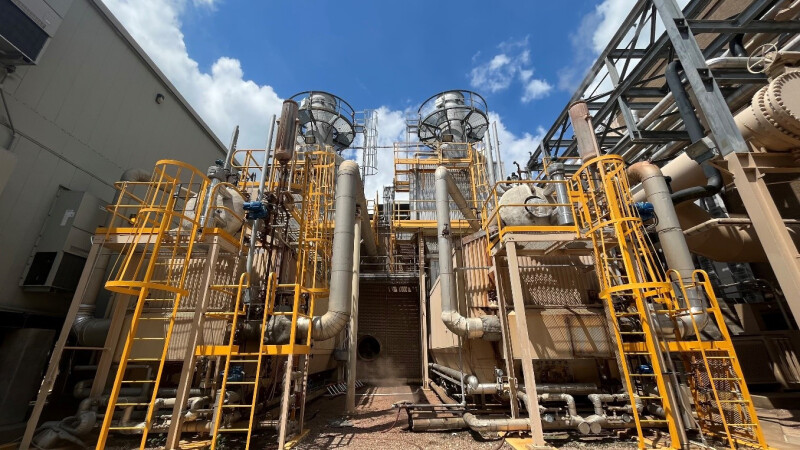Summer planning is critical to continue TECO’s impressive record of uninterrupted service
Imagine the power at your home hasn’t had a major outage, despite storms and natural disasters, for 30 consecutive years. Unimaginable, right?
Well, that’s exactly what TECO accomplished in 2022, as it celebrated supplying chilled water and steam to buildings in the Texas Medical Center without disruption for 30 years.
Both June and July of 2022 registered as the hottest on record in Houston’s history, and thanks to its maintenance protocols, TECO didn’t miss a beat. With temperatures already soaring in the triple digits through the first few weeks of summer 2023, the Department of Energy warned that the excessive Texas heat could cause significant portions of the state to experience energy shortages.
Outages are not an option at TECO, so planning for the punishing Texas summer months is paramount as TECO looks to continue this important track record.
“2022 was one of the hottest summers ever, but operations were normal at TECO. That is the standard we will maintain in 2023 as well,” said Mike Manoucheri, TECO president and CEO. “We continually monitor our equipment health and make sure it is available with reserve capacity and operating at peak efficiency.”
TECO performs preventive maintenance on its chilled water equipment during non-peak cooling periods from late fall through early spring to ensure all components operate reliably and efficiently.
A critical element of that process is the reserve capacity. By maintaining an adequate spare production capacity, TECO adds an extra layer of security to the plant’s services during the peak cooling season.
“We haven’t taken any different measures for this summer than any other summer,” said Mike. “Our standard maintenance practices ensure that we reliably meet customer loads at all times.”
The less customers have to think about the reliability of their thermal utilities, the more they can focus on the work at hand. A loss of steam or chilled water at any of the TMC institutions TECO serves could easily have devastating implications in terms of lost research or significant challenges for doctors and nurses to provide the medical service for which these facilities are known.
TECO’s commitment to investing in redundant and reliable systems and proactive planning before issues arise continues to help prevent service interruptions. This ranges from fortifying the plant through the floodwall constructed in 2004, which proved vital when Hurricane Harvey hit 13 years later, to installing water wells that have mitigated city water outages in the last few years to the gas turbine installed in 2010. A second gas turbine is currently being constructed and will be installed by the end of 2023 to help maintain reliability as customer demand increases.
Since 1992 — even in the face of notable weather events like Tropical Storm Allison, Hurricane Harvey, and Winter Storm Uri’s potentially disabling effects — TECO has not had any major outages.

